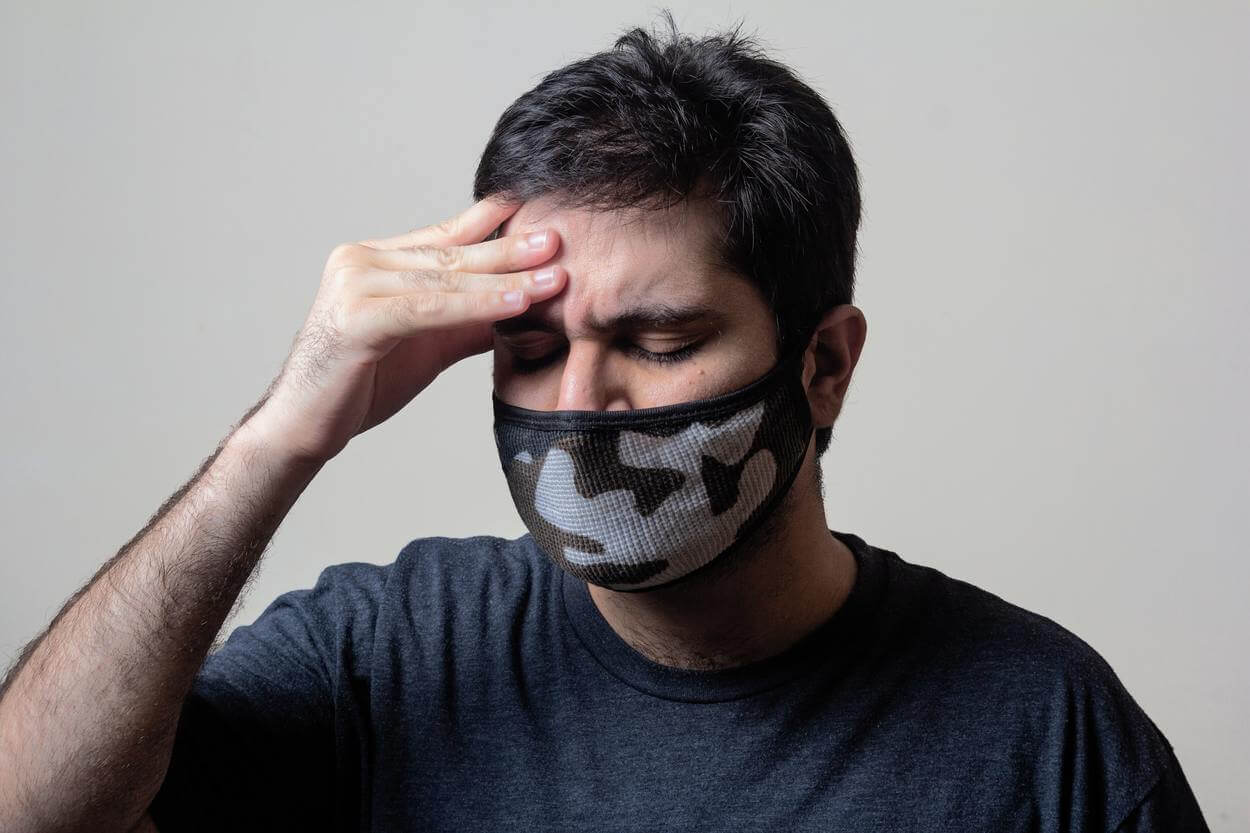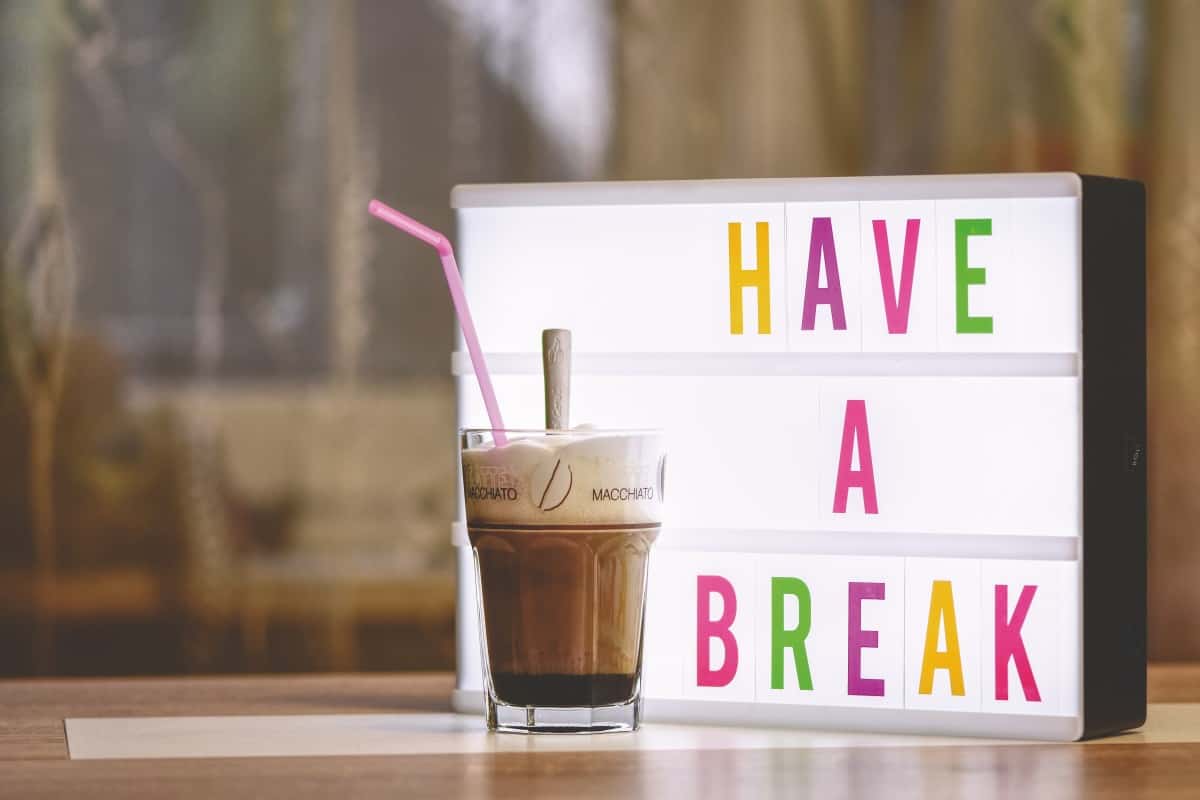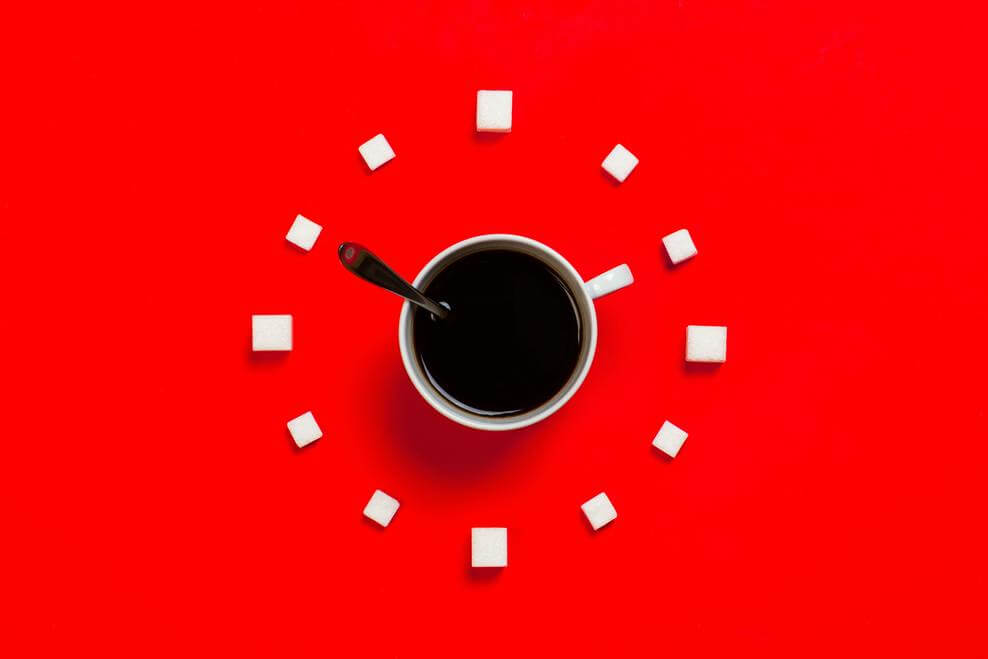Coffee does and can fuel your body. It gives you a quick boost of energy.
However, that energy boost tends to be temporary if you depend too much on coffee to gain energy instead of getting proper nutrition and sleep.
Short answer: Relying on coffee too much can actually zap and drain your energy over time.
As we all know by now, coffee can increase energy levels and help you feel less tired. This happens because of its caffeine content that works as a stimulant in altering your brain functions.
Caffeine is proven to enhance our focus and increase alertness. It does that by blocking the effects of a brain chemical known as adenosine which makes you feel tired.
Simultaneously, it triggers the release of adrenaline, the hormone that is associated with producing and releasing energy in your body.
As much as you enjoy the focus and energy buzz that you get from a coffee hit, overdosing tends to have the opposite effect on your body.
Excessive consumption of caffeine can leave you and me feeling unfocused, tired, and even anxious.
It can also increase our breathing and heart rate.
If you are curious to know more about how coffee affects our energy levels, keep reading!
Can coffee drain your energy?

Though coffee is known to give you a much-needed energy boost, it can also become the reason your energy levels get drained.
Caffeine in coffee acts as a stimulant that alters the brain functions to create a short-term boost in energy and alertness, which many people depend on when they’re feeling tired.
Having said that, drinking coffee regularly will make your body build up a tolerance level, which will reduce the intensity of its effects over time.
Relying too much on coffee to gain energy instead of having proper sleep and nutrition from a healthy diet can eventually drain your energy.
Consuming too much caffeine can also have an adverse effect on the quality of your sleep, which can further reduce your energy levels eventually.
If you love adding sugar and syrups to your coffee, you are more likely to face energy drainage. This is because foods containing high amounts of added sugars can actually zap your energy rather than boost it.
They also tend to increase your cravings for more sugary foods, which can develop a vicious, energy-draining cycle in the long run.
The key to attaining the maximum benefits out of your cup of joe is to take it in moderation. A healthy adult should consume no more than 3-4 cups of coffee in a day.
Watch the video to know more about how coffee can affect your energy levels.
Why do I feel tired after drinking coffee?

Though coffee is known to be an energy-boosting drink, too much consumption can have the opposite effect. I have an entire article dedicated to this very topic and you can check it out for a deeper dive.
But in short, the following are some of the reasons which you make you feel tired after consuming coffee:
Coffee Blocks the Effects of Adenosine
Do you know why you feel alert and energized after having a cup of joe?
This is because the caffeine in coffee blocks the effects of adenosine. This is the hormone that gives the signal to your body to become drowsy and sleepy.
However, as soon as the caffeine wears off, the buildup of adenosine hits you all at once – making you more sleepy and tired.
You may have developed caffeine tolerance
If you consume caffeine regularly, you are gradually building tolerance for it over time.
As caffeine tends to block the effects of adenosine, your body may start producing more of it in response.
When your body produces more of the adenosine compounds, your usual amount of coffee may not be sufficient to block its effects. Thus, you may feel more weary and drowsy even after having your java.
You might be adding too much sweetener to your coffee
The added sweeteners in your coffee might be the potential culprit of making you feel worn out.
Sweeteners can increase the blood sugar level in your body.
As a result, your body starts producing additional insulin which may cause your glucose levels to drop, leading to a sugar crash.
If you are trying hard to keep yourself alert and awake after your morning cup of joe, try to avoid sweeteners from your drink to assess if sugar is the real culprit.
If you want to have an in-depth understanding of caffeine and sugar crashes you can read more on my post here.
The dairy might be affecting you
The dairy you add to your coffee contains tryptophan, an amino acid that has sleep-promoting properties. While this can be helpful for a goodnight’s sleep, it may tend to be counterproductive in your morning lattes.
You can try swapping out the dairy in your coffee with a plant-based alternative to eliminate the chances of it being the reason for your tiredness.
Caffeine Can Be a Diuretic
Have you ever felt that your toilet visits increase after consuming caffeine? This is because caffeine can be a diuretic, which means it can make you urinate more to get rid of water and salt from your body.
If you consume a lot of coffee without properly hydrating your body, you may start feeling the effects of dehydration, like:
- Fatigue
- Dizziness
- Tiredness
- Thirst
- Dry mouth and skin
In order to avoid dehydration, make it a habit to drink an adequate amount of water with your morning joe. According to the Mayo Clinic, adults need to drink between 92 and 124 ounces of water daily to fulfill their hydration requirement.
Though many people prefer drinking coffee to energize themselves, some move towards consuming energy drinks to give them a real quick energy boost. Honestly, that might not be a good option.
The table below compares both of the drinks:
| Coffee | Energy drinks |
| The amount of sugar can be adjusted | High in sugar |
| Lower in calories | A high amount of calories |
| Pocket friendly | Can be expensive |
| Natural source of caffeine | Contains lesser and added caffeine |
| No suspicious ingredients | Ingredients can be doubtful |
| Can be adjusted according to taste | Can’t be altered |
How long does coffee give you energy?

The caffeine in your coffee usually starts working to energize you within 5-30 minutes of consuming it. Its effect on you can last for up to 12 hours.
The effects you experience though depend on many factors such as your body mass, caffeine tolerance, and metabolism.
Caffeine works as a stimulant to speed up the messages sent from your brain to your body and vice versa.
It can make you feel more awake and energized if you consume it in small doses and of course as part of a healthy balanced diet.
It is recommended by The Australian Dietary Guidelines to consume 1-2 small doses of coffees (around 200ml) as part of a healthy daily meal plan for a healthy adult (aged between 19-50).
For someone who drinks caffeinated beverages rarely, a small dose can have a significant effect. This is because you are more sensitive to caffeine.
Habitual coffee drinkers on the other hand may observe that they require increasingly stronger shots of coffee over time to attain the same energy boost that they used to feel previously.
To sum it all up
People all over the world consume coffee for its caffeine content which can give them an instant and a much-needed energy boost.
Yet that energy boost tends to be temporary if you and I rely too much on coffee to gain energy instead of getting the required proper nutrition and sleep our body needs.
Over time, coffee can drain our energy.
It’s considered “generally safe” for most people to consume three to four cups of coffee every day, and that suggested moderate amount may also reduce the risk of certain health conditions.
However many researchers have warned that smoking may cancel out any benefits of drinking coffee.
Caffeine is the main feature of coffee, but coffee contains many other compounds as well. And not to mention that there are different ways of preparing and drinking it.
This is why it’s difficult to determine exactly how coffee affects a particular person and which components can have beneficial or adverse effects on his or her body.
I recommend that if you really want to get the maximum health benefits from coffee, you should avoid exceeding the daily recommended dose. Try to also observe the effects of other ingredients that you add such as sugar, cream, or flavorings, as these may not be as healthy as you think.
While coffee can be a good choice to get an instant energy boost, it should be kept as a small part of your healthy diet.
As I’ve stated a lot of times here, nothing beats the energy you get from a proper and nutritious diet and by having adequate sleep.
Other Articles
- Click here to see the visual story of this post
- What Are The Benefits of Long Black Coffee? (Revealed)
- Does Coffee Exfoliate Skin? (Explained)
- Does Coffee Work as a Pre-workout? (Interesting Take)

